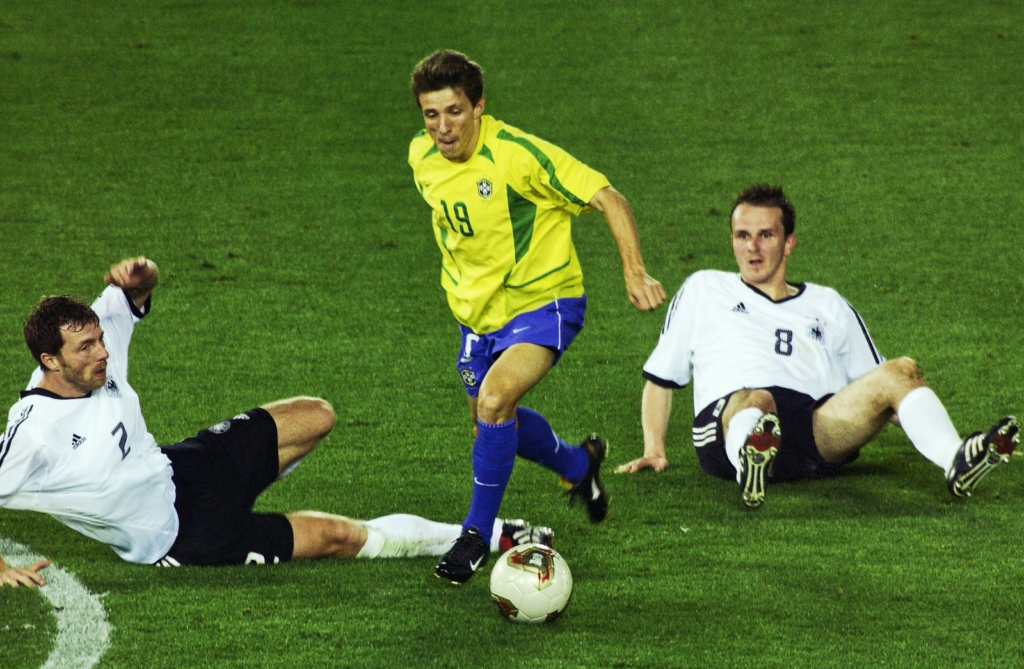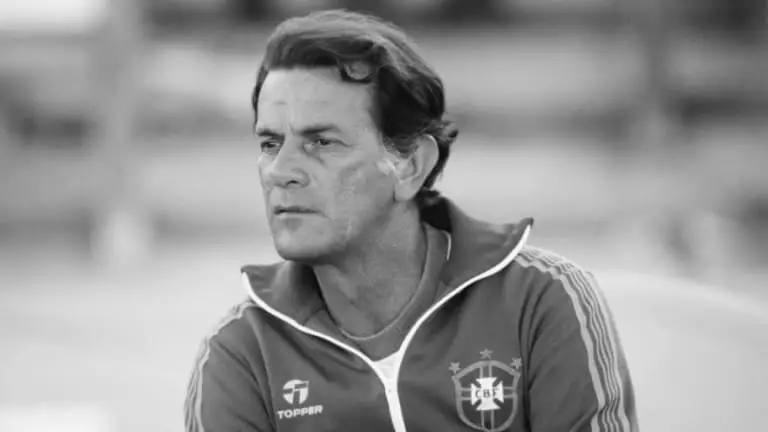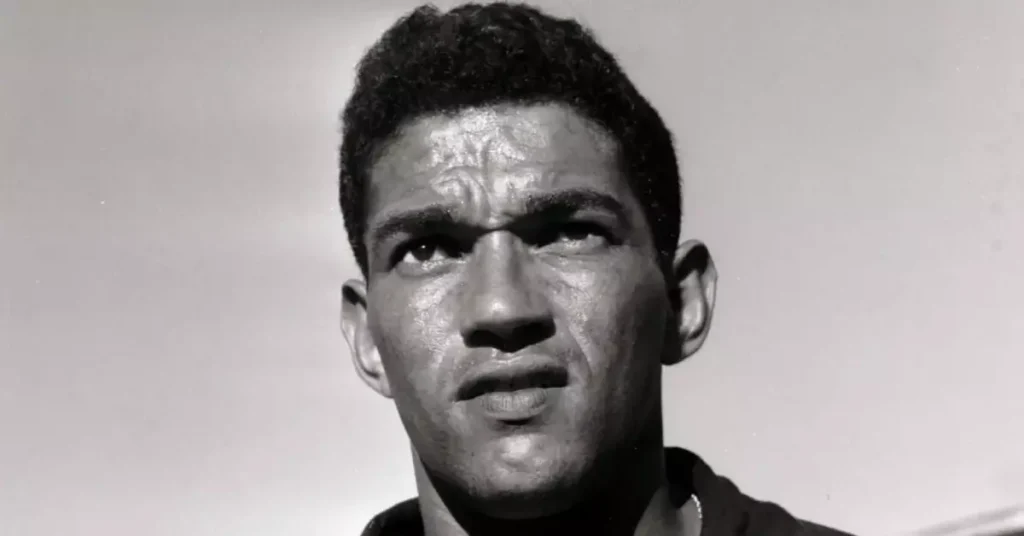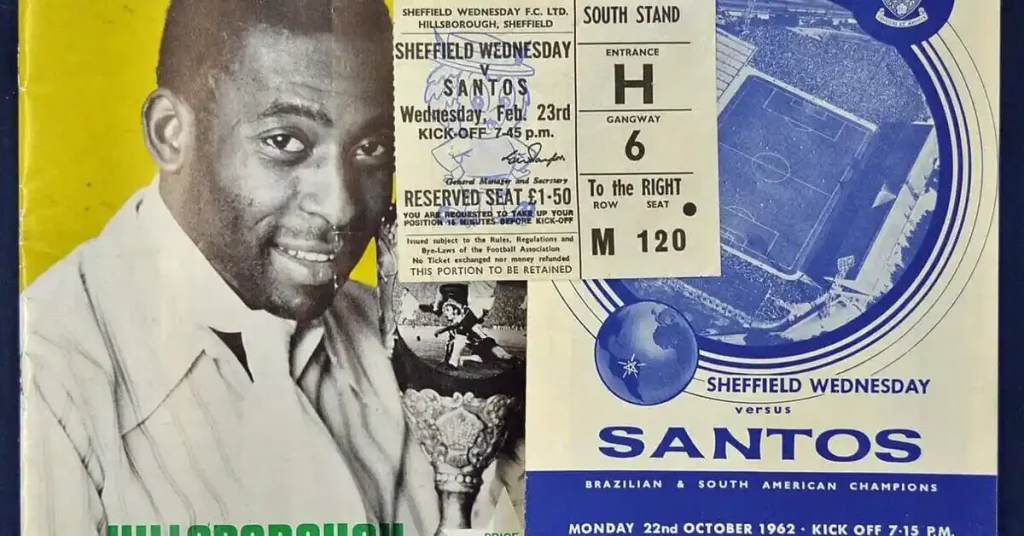Every small-town English club that has found a modicum of success in the Premier League has that one cult hero that fans claim to be one of the Premier League’s greatest-ever players.
The likes of Jay-Jay Okocha at Bolton, Hatem Ben Arfa at Newcastle, Tim Cahill at Everton, Le Tissier and of course, Paulo Di Canio.
But none of these possess the international acclaim to reinforce their cult status. Of all the cult icons, one not only stands above the rest as the most beloved but also bridges the gap beyond just a club and cult legend.
Juninho, like all Brazilian footballers, came from very humble beginnings.
Gifted But Slight
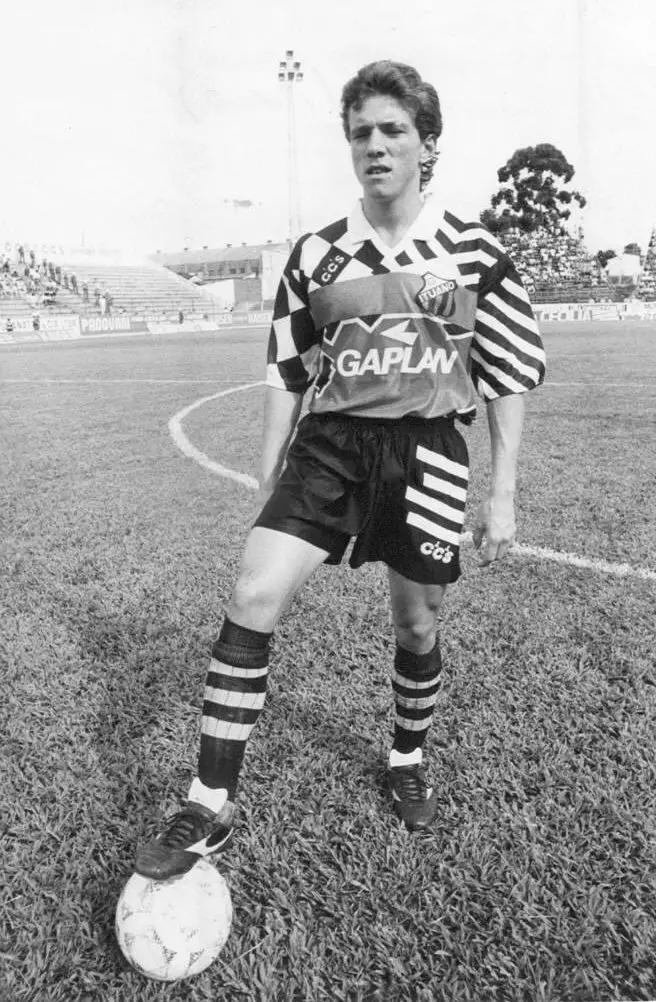
For all his talent, however, it would be an impassable obstacle that dashed his aspirations before a career could manifest.
A very small boy, clubs simply felt there was no chance that he could match the physicality of professional football.
A slew of coaches were unable to see past his height. Clube Atlético Juventus were the first to reject him, and later at 13, Corinthians would pass up the opportunity to take him on, leaving the teenager reeling and considering giving up football altogether.
By the time he was 16, he was still a very small figure, all the bigger clubs simply felt a player of his diminutive stature would never make it, no matter how good he was on the ball.
But, with his family well aware of his talent, and Juninho not one to give up easily, he soldiered on. He and his family relocated to Itu, where he joined local side Ituano FC youth team.
In just a few years he rose through the ranks to earn a starting place in the team at just 18 years old. His big breakthrough however was just starting.
Ituano geared up to play in the Sao Paulo State Championship, simply hoping to make a good account of themselves as they faced off against much bigger sides.
Juninho however, would carry his side to a 7th-place finish, scoring 10 goals as Ituano just missed out on progression to the playoffs by two points.
Teams were circling the little genius, and with his choice of suitors, it was Sau Paulo who got the man.
An Unlikely Bond
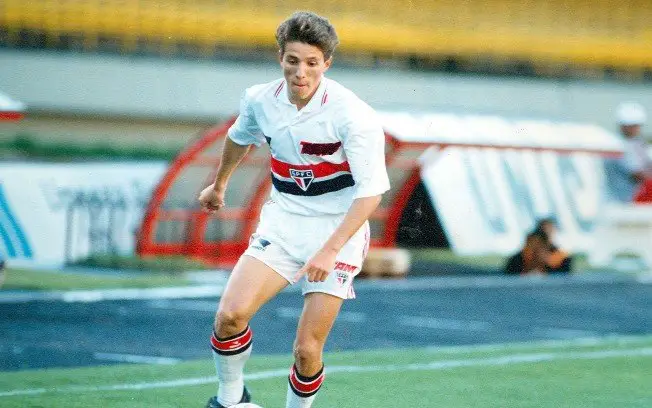
But, aged just 21, he soon claimed a regular spot in the Sao Paulo starting eleven.
He won Rookie of the Year, and in his first season helped Sao Paulo repeat their Intercontinental feat, as they bested AC Milan this time.
Juninho even earned his first international caps during his time at Sao Paulo, in fact, it was one of these appearances for Brazil that were behind the career-defining move to the North-East of England.
As Brazil travelled to take part in the 1995 UMBRO Cup, nobody in the host nation of England had heard of Juninho Paulista.
Brazil won every game, only conceding once, to England and Juninho started every match, but particularly impressed when it mattered the most.
Juninho tore England apart in the tournament’s final game. Scoring a free-kick and setting up Ronaldo. The little magician was unstoppable.
A hagged Bryan Robson watched on as he picked England apart, and knew what such a player could do for newly promoted Middlesbrough.
Middlesbrough paid £4.75 million for his signature, and whilst a hefty price for a young midfielder at the time, it would soon prove a bargain.
As season tickets went on sale, the queue of Boro fans extended beyond the stadium grounds.
Juninho started brilliantly. In a game broadcast live on Brazilian TV, he took just 11 minutes of his debut to register his first assist.
The player may not have looked suited to English football on arrival, but this was a man underestimated his whole life, and in dealing with this he had developed plenty of grit and guile.
He was never one to shirk a tackle when needed and seemed right at home on muddy cold pitches.
More than just a marquee signing, he put everything on the pitch every time he played, which quickly endeared him further to the fans.
Boro started the season brilliantly, losing just 1 in 10, but collapsed in the second half of the season, falling to a respectable 11th-place finish.
Bolstered by the huge signings of Ravanelli and Emerson, Middlesbrough were set for a push for Europe the following year.
Sadly, it wasn’t to be…
The Woes of Teesside
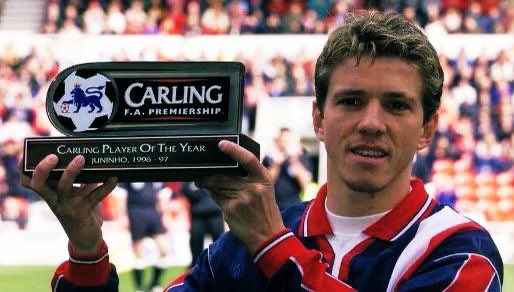
The League Cup Final went to a replay after the score was still 1-1 after 90 minutes. They’d flounder against Leicester losing 1-0.
They were just 2 minutes from glory before a Heskey goal sent the game to a replay in the 118th minute.
Worse still, in the second leg, they would again take it to extra time, losing in the 100th minute.
Then, having reached the F.A Cup final, they’d lose in completely the opposite manner.
Just 43 seconds into the final Roberto Di Matteo scored a wonder goal to put Chelsea 1-0 up. Star striker Ravenelli then limped off 24 minutes in, and in the 83rd minute Boro were finished off.
But things still got worse…
The squad was more than good enough for the premier league but with their thin depth and frequent injuries to star players, Juninho and Middlesbrough were left in a relegation battle.
Their fate would be decided by realms beyond their control.
As they shaped up to face Blackburn in a bottom-of-the-table clash, a debilitating virus swept through the squad, leaving Bryan Robson with just 12 senior players.
Middlesbrough, believing they had been given the go-ahead for a postponement, didn’t turn up, but following Blackburn protests, Boro were deducted 3 points with a win awarded to Blackburn.
On the final day, Boro were relegated by just 2 points.
Had they fielded a rag-tag team and lost 8-0 they’d never have been relegated, and Juninho would never have had to leave so soon.
Juninho even won the Premier League player of the year. Winning such an award while being relegated is a feat that has never been replicated.
But, as he loved the club, Juninho deserved to play at the highest level. There were no hard feelings when he was sold in the Summer to Atletico Madrid for almost £14 million.
Despite Boro’s relegation, Juninho had performed brilliantly, scoring 13 in 35 league games from midfield. A European giant looking to rebuild their squad seemed the perfect home for Juninho.
Alas, his career in Spain was over before he could truly settle.
Promise Shattered
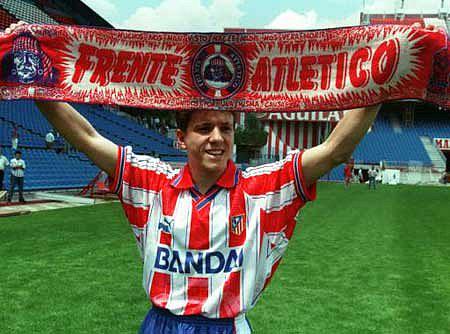
He’d miss the 98 World Cup as a result, and despite recovering to play a full season the following year, the injury had stymied his progress.
By 1999 he was no longer in favour. Claudio Ranieri had taken charge and didn’t see the Brazilian in his plans, but there was an exciting offer thrown Juninho’s way as the season got underway.
It was Middlesbrough.
They’d returned to the Premier League on the first time of asking, and having finished 9th on their return, and seeing Juninho out of favour, a return for the Little Fella seemed to suit all involved.
It was a forgettable season for him, but despite his talents having waned, due to that injury, he was still the hero adored by the Boro masses, his return only further cementing him as a club hero.
Juninho would end up heading back to Brazil on loan, in an attempt to regain some confidence and sharpness.
Pairing up with his namesake, Juninho Pernambucano, the two terrorised the league, putting goals on a plate for striker Romario.
He’d recapture some of the ire that made him so brilliant to watch during his time at Vasco, scoring 13 in 47, and winning a Brazilian Championship.
The next year he spent a brief period at Flamengo before he found himself in familiar scenery.
Before that, however, the year is now 2002. With the World Cup taking place that Summer, Brazil called up Juninho, with the player having done enough to earn a place in the squad.
He would start 4 games for a Brazil side that went on to win it all, earning himself a World Cup winners medal.
But the pinnacle of Juninho’s career, in his eyes at least, was yet to come.
Glory on the Biggest Stage
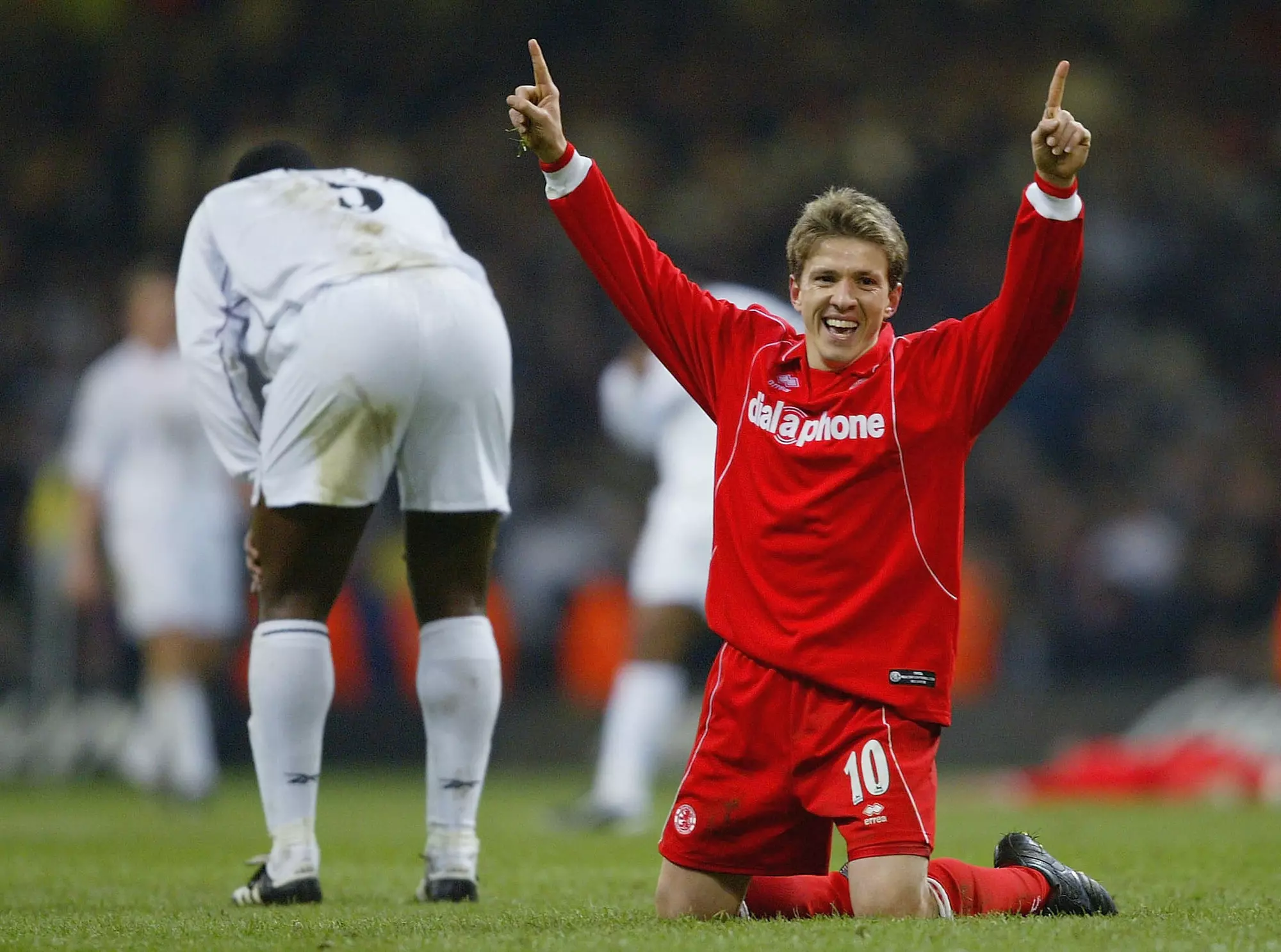
But all was not as it seemed, Boro now managed by Steve Mclaren convinced him to fly to Teesside before offering a contract that left Juninho angry.
Juninho eventually would sign, both himself and fans pushing for the move, but once again tragedy would strike.
Upon his arrival he suffered an awful Cruciate Ligament injury, leaving him out of the team for 6 months.
When he finally played for Boro again, he would score a goal that salvaged a point against Everton as he made his 3rd debut for Middlesbrough, 6 months after re-signing for £6 million.
Overall he managed just 10 appearances that season.
The next year made all his hardships, and Boro’s patience worth it…
Despite having spent the previous season out with one of football’s more devastating injuries, he’d enjoy some of his best football in the 03/04 season.
Better still, after so much heartbreak in his first spell, Juninho would help Middlesbrough to a long-awaited domestic honour.
An achievement the man has declared is his proudest moment. A bigger moment than his World Cup win, Juninho and Middlesbrough finally won some silverware.
In a game not for the purists, Middlesbrough bested a strong Bolton side 2-1, and Juninho had finally achieved tangible success with the club that idolised him so.
This unlikely bond between Brazilians and club is still felt so strongly today.
Not a single resident on Teesside is unaware of the man, even if those averse to football know of him.
And in Brazil, should you mention Middlesbrough, most will fondly talk of Juninho, the club still known to many in the country even today.
Tenacious Even At The End
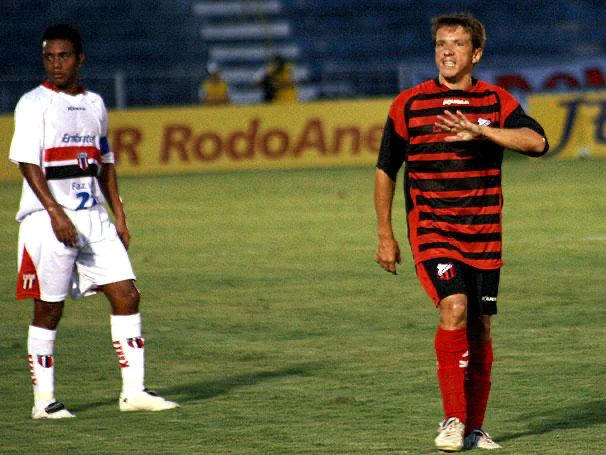
He was never utilised properly by Martin O’Neill, who played him on the right side of a 4-4-2. Juninho later commented, “I don’t know why he signed me”.
He returned to Brazil where a few seasons at Palmeiras saw him enjoy his football again scoring 20 in 63. A stint back at Flamengo followed by a swansong at Sydney FC in Australia made up the final chapter of his playing career.
Or was it?
Despite retiring in 2008, he’d return to football for his boyhood club, Ituano just 2 years later as a player/president.
Usually, such roles are purely for vanity, but Juninho would score the goal that saved Ituano from relegation on the last day of the season.
Juninho was a player who without injury could have been so much more, but while some may consider his lack of European success a failure, what he did for the people of Middlesbrough will likely never be repeated by another player for any club. It was a different time…
